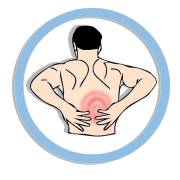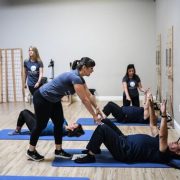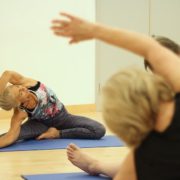3 Tips to Avoid Unwanted Aches and Pain from Holiday Stress
3 Tips to Avoid Unwanted Aches and Pain from Holiday Stress
The holiday season is a time of celebration, joy, and cherished moments with loved ones. However, it often brings with it a flurry of activities, responsibilities, and – unfortunately – stress. While the holidays are meant to be a time of relaxation and enjoyment, the reality for many is quite different. The pressure to create the perfect holiday experience – coupled with the hustle and bustle of shopping, cooking, and entertaining – can lead to elevated stress levels. What’s more, this heightened stress can manifest physically in the form of aches and pains, making it essential to manage both our mental and physical well-being during this season.
Here are three of my top recommendations for reducing stress during the Holidays (or any time of the year), to help you avoid unwanted physical aches and pain.
3 Tips to Avoid Holiday Stress:
-
Prioritize Intentional Breathing
Breathing is one of the most powerful tools at your disposal for rapidly reducing and interrupting stress. The act of taking a deep breath sends a signal to your brain to calm down and relax. This simple yet effective technique can have a dramatic impact on your stress levels in as little as 30 seconds. The beauty of intentional breathing is that you can do it anywhere and at any time—whether you’re stuck in traffic, at your desk, in a crowded store, or even in the privacy of your bathroom.
The premise behind intentional breathing is to interrupt the accumulation of stress. By doing so, you decrease the overall toll it takes on both your body and mind. When stress builds up, it can manifest physically, leading to muscle tension, headaches, and even neck and back pain. Therefore, taking a moment to practice intentional deep breathing can make a significant difference in how you feel during the holiday season.
-
Practicing Gratitude
Gratitude is a powerful antidote to stress. Studies have shown that practicing gratitude can lower cortisol levels in the body by approximately 23 percent. Cortisol, often referred to as the stress hormone, is responsible for many of the negative effects of chronic stress, including high blood pressure and an increased risk of heart disease. Chronic stress can also be responsible for unwanted muscle tension – especially in areas like your neck, back, and hips.
When we focus on things we appreciate and practice gratitude, we activate the parasympathetic nervous system, which is responsible for calming the body and returning it to its natural rhythm. By consciously practicing gratitude, you actively lower your stress levels. This not only benefits your mental well-being but also has a positive impact on your physical health. Reduced stress can lead to lower blood pressure, improved sleep quality, and decreased muscle tension.
-
Incorporate Physical Activity
Physical activity is a powerful stress-reduction tool with numerous benefits for both body and mind. Engaging in regular exercise helps boost your mood by releasing endorphins, the body’s natural stress and pain relievers. Additionally, physical activity helps put an end to the “fight or flight” response triggered by stress.
In ancient times, our fight or flight response served to protect us from immediate danger, such as being chased by a predator (aka Lion). Physical movement, like running, signaled the end of the stress cycle by telling the brain that we were safe. In the modern world, stress triggers may not be as obvious, but they can still activate these ancient systems. When stress becomes chronic and prolonged, it can have detrimental effects on your physical and mental well-being.
Purposeful movement, even something as simple as a brisk walk, can help break the cycle of stress in your body. Engaging in simple activities like jumping jacks, push ups, or even dancing in your living room can elevate your heart rate just enough to signal the end of the fight or flight response.
While the three essential tips outlined above can be highly effective in managing holiday stress, they may not be suitable for everyone, especially if you’re dealing with pain or injury. If you’re feeling overwhelmed by stress and physical pain this time of year, consider reaching out to a qualified specialist for guidance.
Are you local to Portsmouth, NH?
See if you could qualify for a free discovery visit with a specialist by clicking HERE.
Dr. Carrie Jose, Physical Therapist and Pilates expert, owns CJ Physical Therapy & Pilates in Portsmouth and writes for Seacoast Media Group. To get in touch, email her at [email protected].












